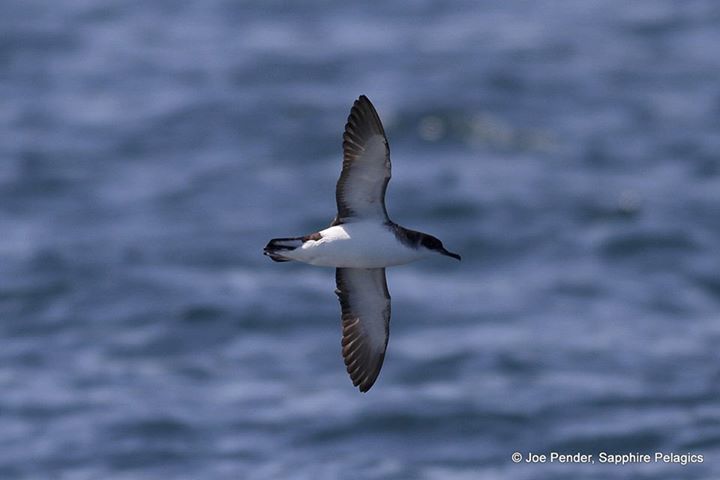 A Manx Shearwater in flight; photograph by Joe Pender
A Manx Shearwater in flight; photograph by Joe Pender
James A. Kempton (Department of Biology, University of Oxford, United Kingdom) and colleagues have published open access in Science Advances on a new metric demonstrating Manx Shearwaters’ utilisation of dynamic soaring and corresponding distribution at sea.
The paper’s abstract follows:
“Dynamic soaring harvests energy from a spatiotemporal wind gradient, allowing albatrosses to glide over vast distances. However, its use is challenging to demonstrate empirically and has yet to be confirmed in other seabirds. Here, we investigate how flap-gliding Manx shearwaters optimize their flight for dynamic soaring. We do so by deriving a new metric, the horizontal wind effectiveness, that quantifies how effectively flight harvests energy from a shear layer. We evaluate this metric empirically for fine-scale trajectories reconstructed from bird-borne video data using a simplified flight dynamics model. We find that the birds’ undulations are phased with their horizontal turning to optimize energy harvesting. We also assess the opportunity for energy harvesting in long-range, GPS-logged foraging trajectories and find that Manx shearwaters optimize their flight to increase the opportunity for dynamic soaring during favorable wind conditions. Our results show how small-scale dynamic soaring affects large-scale Manx shearwater distribution at sea.”
REFERENCE:
Kempton, J.A., Wynn, J., Bond, S., Evry, J., Fayet, A.L., Gillies, N., Guilford, T., Kavelaars, M., Juarez-Martinez, I., Padget, O., Rutz, C., Shoji, A., Syposz, M., Taylor, G.K. 2022. Optimization of dynamic soaring in a flap-gliding seabird affects its large-scale distribution at sea. Science Advances. https://doi.org/10.1126/sciadv.abo0200
Posted 5 September 2022

 English
English  Français
Français  Español
Español